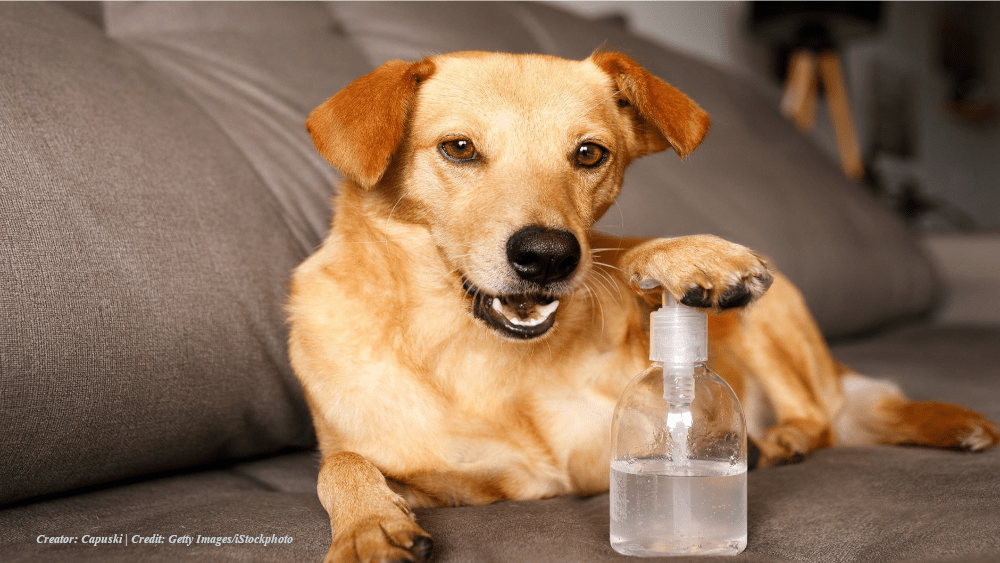
As the pandemic continues to affect our daily lives, there is one item that more and more pet parents are using that they need to make sure to keep away from their pets – hand sanitizer.
A news release says Hand sanitizers continue to make headlines – whether it’s the warnings about the potential dangers around alcohol-based hand sanitizers or the companies shipping thousands of gallons of hand sanitizer to polling places in advance of the November election.
Veterinarian Dr. Sarah Nold says most hand sanitizers contain some form of alcohol, such as ethanol. If your dog or cat ingests a large amount of hand sanitizer, this could cause alcohol toxicity. Small dogs and cats would be at a greater risk of this.
Alcohol toxicity is unlikely to occur if your dog or cat was to lick your hands after you applied hand sanitizer. After applying hand sanitizer, ideally you would wait until your hands are dry before petting or offering your dog or cat a treat. Many dogs and cats may not like the smell or taste of hand sanitizer on your hands, especially before the alcohol has completely evaporated.
She says, if you think your pet has ingested a large amount of hand sanitizer, such as if you found them chewing on a mostly empty bottle, you should immediately contact your veterinarian or one of the pet poison control services available. Common symptoms of alcohol toxicity are lethargy, weakness and incoordination when walking. These symptoms typically occur within an hour of ingestion.


